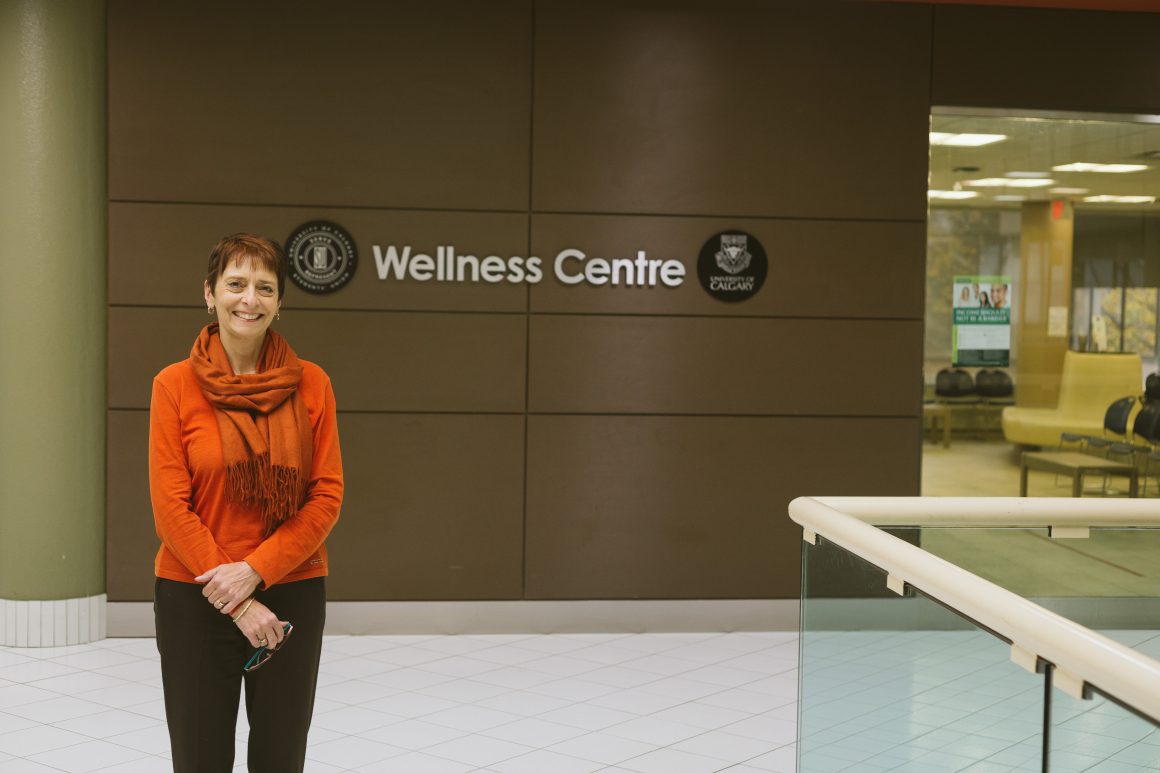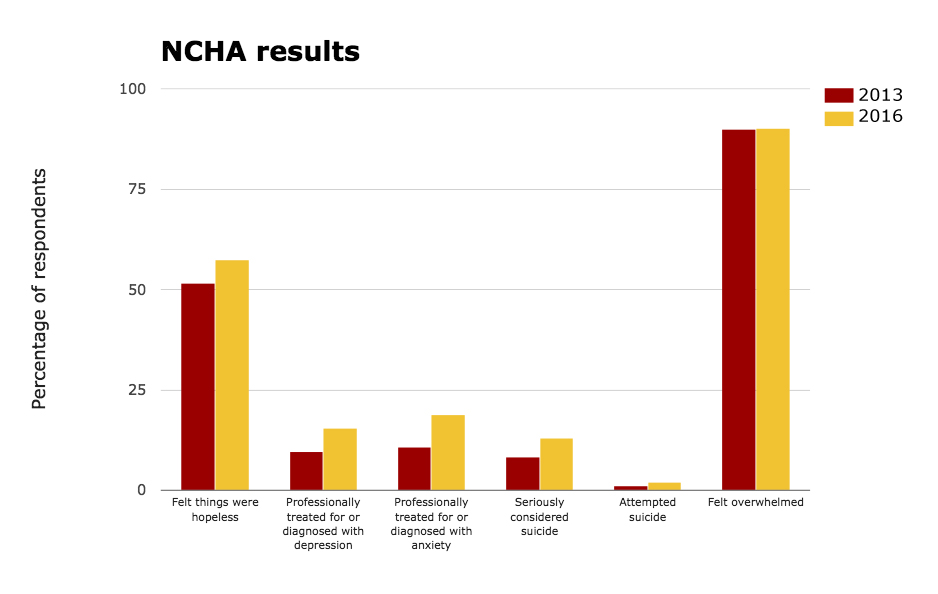
2016 National College Health Assessment results released
By Scott Strasser, November 29 2016 —
The 2016 National College Health Assessment (NCHA) results were officially released on Nov. 28. The data provides Alberta’s post-secondary institutions with a more detailed framework for understanding what mental health problems students currently face.
The NCHA is an anonymous web-based survey that asks students general and mental health-related questions. The American College Health Association created the survey, which Canadian universities later adopted.
This year marks the second time the University of Calgary has participated in the NCHA. The university emailed the survey to 5,000 U of C students last winter, with 1,004 recipients — 20.1 per cent — responding.
The U of C also took part in the last NCHA survey in 2013.

Psychology professor Andrew Szeto is the director of the Campus Mental Health Strategy // Photo by Scott Strasser
Results of the 2013 survey, along with other factors including the 2014 Brentwood tragedy, helped spur the U of C to create its Campus Mental Health Strategy (CMHS). The strategy officially launched in December 2015.
U of C psychology professor Andrew Szeto is the director of the CMHS. He said the NCHA survey is an important indicator of what mental health problems post-secondary students struggle with most.
“It gives us a gauge of how that student population is currently doing with regards to mental health concerns, how they’re feeling in general,” Szeto said. “Although [things like sadness and loneliness] might not be criteria for mental illness, they’re indicative of things happening on campus.”
Compared with the 2013 NCHA survey, this year’s data shows higher percentages of students reporting mental health issues. This year, 13.1 per cent of respondents claimed they seriously considered suicide at some point in the last 12 months, compared with 8.4 per cent in 2013.
The survey also saw large increases in the number of respondents who reported to have been professionally treated for or diagnosed with depression or anxiety in the last 12 months. In 2016, 15.4 per cent claimed to have been treated for or diagnosed with depression, a nearly six per cent increase from 2013.
Another increase was anxiety, with 18.9 per cent of respondents in 2016 — compared to 10.7 per cent in 2013 — reporting they were treated for or diagnosed with anxiety at some point in the last 12 months.
The 2016 data also showed notable increases in the percentage of respondents who reported feeling hopelessly overwhelmed, lonely or exhausted.
But according to Szeto, the increased percentages between the 2013 and 2016 data could be due to increased mental health problems among university students, but also a decrease in the stigma surrounding openly discussing mental health-related issues at universities.

“We could be seeing actual increases [of issues] but we may actually be seeing increases because of reduced stigma creating a more open, more supportive place for people to discuss these things,” he said. “Over the past three or four years — especially after the campus mental health strategy came out — we’ve worked hard on campus to reduce the stigma of mental illness to create a more supportive environment for people to talk about these issues.”
Students’ Union Wellness Centre senior director of student wellness access and support Debbie Bruckner agreed that destigmatization of mental illness could play a role in the differences between the 2013 and 2016 data sets.
“Since Alberta institutions last ran the survey, there’s been a tremendous amount of work on reducing stigma, public awareness, increasing capacity, encouraging earlier reporting and having more information available for students,” Bruckner said. “If students are accessing support earlier, that’s actually very positive.”
According to the 2016 data, 78.6 per cent of NCHA respondents reported that they would consider seeking professional help from a mental health expert if they experienced a serious problem — a four per cent increase compared to the 2013 survey.
More than 7,200 students answered the Alberta version of the 2016 NCHA survey. Students from 10 post-secondary institutions in Alberta participated.
